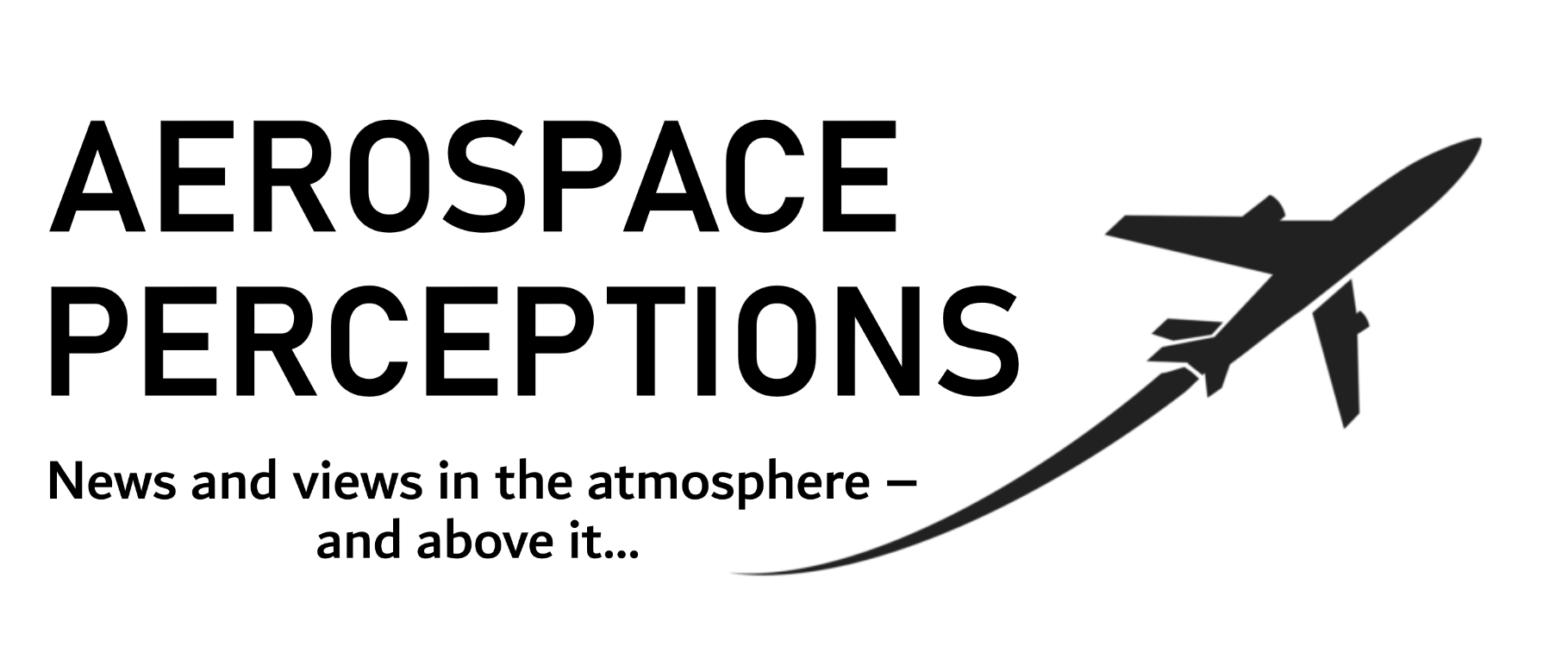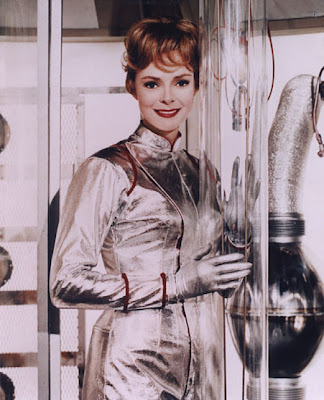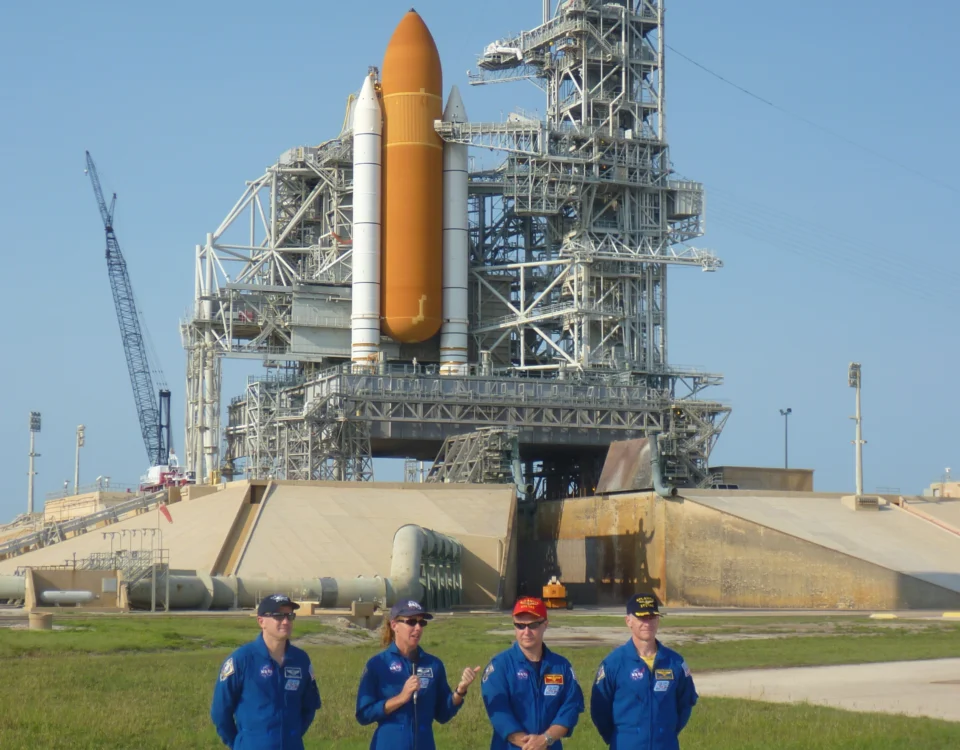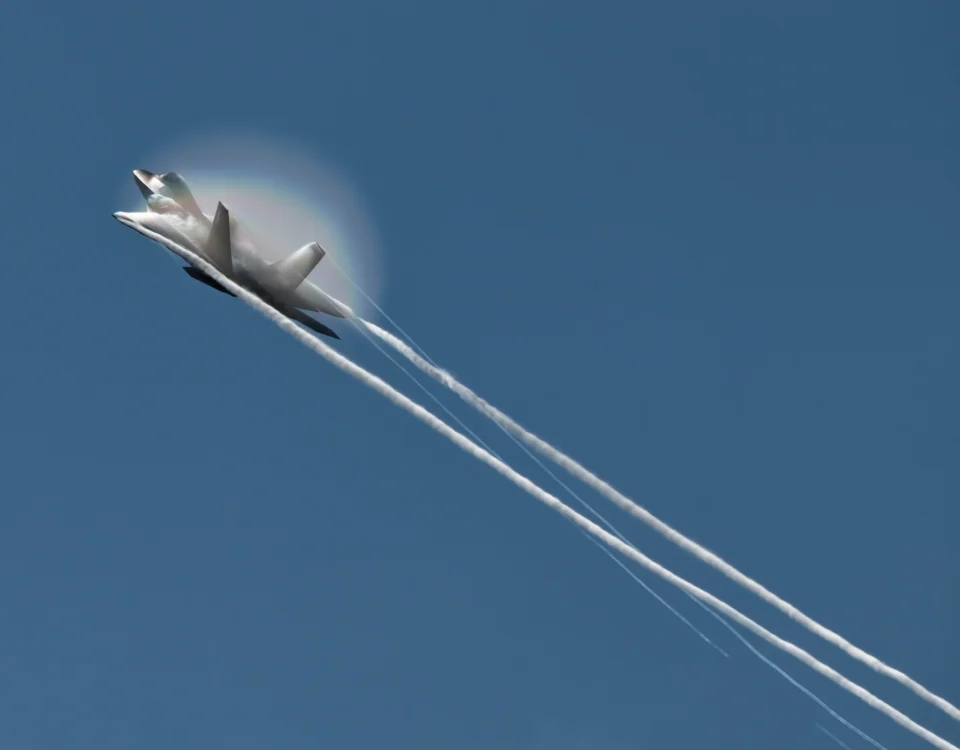Blogs are often based on personal experiences. Here at Aerospace Perceptions, though, I want to focus on sharing with people exciting developments in the realms of spaceflight and aerospace. But today, allow me to take a very personal trip back in time to Memphis, Tennessee, 1965.
Your host was enamored with the actual space program going on at that time: NASA’s Gemini flights were laying new paths into Earth orbit and Apollo was in sight. But as a kid, I couldn’t help but look to the future that I knew was coming. And part of that future was depicted in the CBS series Lost in Space, detailing the adventures throughout the galaxy of the Robinson family, stowaway Dr. Zachary Smith, and my favorite character, the Class M-3 Model B9, General Utility Non-Theorizing Environmental Control Robot. And yes, I had to Google that…
To me, the idea of flying around the universe in a flying-saucer-shaped spacecraft encountering aliens and seeing all sorts of amazing sights was exactly what spaceflight was all about. And though I enjoyed a kid’s life in Memphis – even seeing Elvis drive by while we rode our bikes to play under the real Memphis Belle B-17 bomber installed at the National Guard armory near the Memphis Fairgrounds – my mind was often on the heavens above.
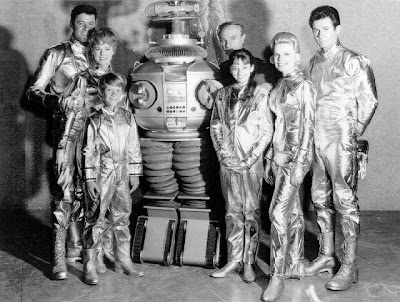 |
| The crew of the Jupiter 2 ready for action in their flight suits. Dr. Maureen Robinson, played by June Lockhart, appears second from left. |
One day, we got huge news. June Lockhart – Dr. Maureen Robinson from Lost in Space – was actually in Memphis! In those more trusting times, the society page of the Commercial Appeal actually mentioned the family who was hosting her. I don’t recall if they also listed the address, or if we looked it up in the phone book, but later that sunny afternoon three ten-year-olds were wheeling their way into a strange – and quite wealthy – neighborhood. Having located the coordinates, we headed uphill, following a long, winding driveway.
We arrived outside a big garage and a back door to the huge house. Bikes parked, we boldly walked up to the door. It was opened by woman, obviously a servant at the house. “Hi, we’re here to see June Lockhart!” She looked surprised, but then smiled and as gently as possible told us that we weren’t really welcome there, and that June Lockhart was elsewhere at the moment. Dejected, we returned to our bikes. And at that very moment, a large car navigated the driveway and came to a stop by us. Several people got out, but we only saw one: June Lockhart, radiant in a white dress, her red hair fashionably styled in a complex arrangement. We immediately surrounded her, and I’m happy to say she was delighted to meet us – or at least she acted like she was. She asked us how in the world we managed to find her, laughing at our account. And, of course, she charmed us with some brief tales about her adventures in space. We rode off minutes later in a state of ecstasy, and I still have the autograph she personalized for me that warm, late afternoon. It was the greatest celebrity encounter of my Memphis years – except possibly for meeting Sam the Sham and the Pharaohs. But that’s a topic for another day, and more appropriate for my music blog!
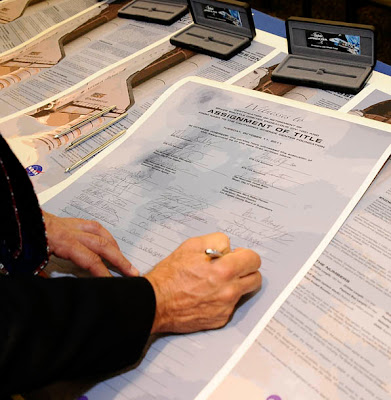 |
| It’s official: Endeavour is a resident of Los Angeles. Photo by Gene Blevins/LA Daily News. |
This long-ago day came to mind when, on Tuesday, October 18, the official “ownsership” title of the Space Shuttle Endeavour was transferred to the California Science Center in Los Angeles. Appropriately, the commander of the STS-134 final flight of Endeavour was on hand, Mark Kelly, along with members of his crew. But there was another special guest there, one who helped fire the spaceflight imagination of impressionable ten-year-olds more than four decades before: the lovely June Lockhart.
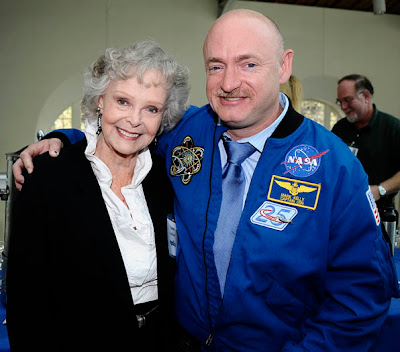 |
| June Lockhart and Mark Kelly discuss their adventures in space, at the California Science Center on October 18, 2011. Photo by Gene Blevins/LA Daily News. |
There’s no question that Endeavour was a great spacecraft, traveling over 122,000,000 miles in its 299 flights into space. But I’m willing to bet June covered millions more than that in the Jupiter 2 – even if it was science fiction.
Related posts
March 23, 2025
February 12, 2025

